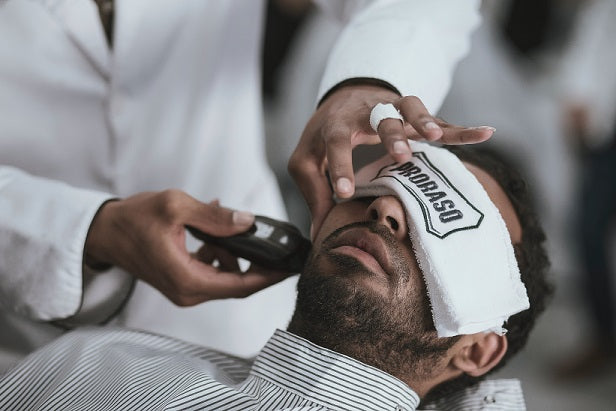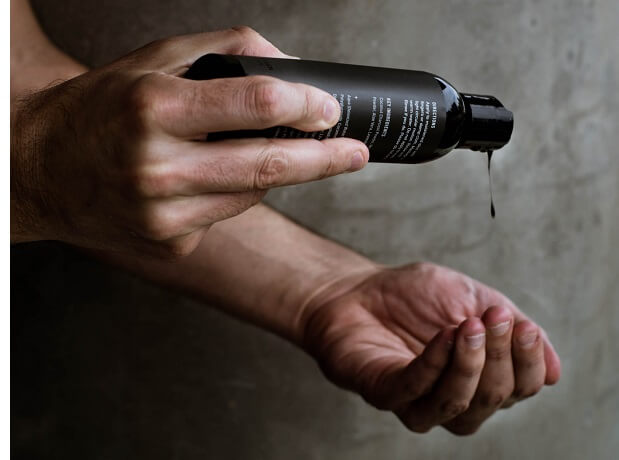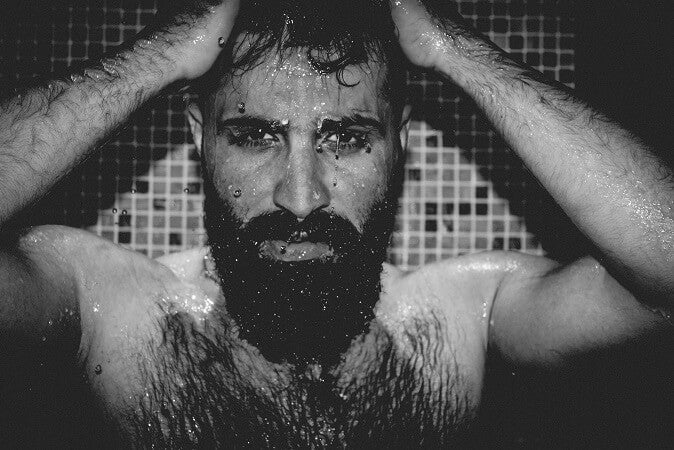Are you plagued with how to stop beard dandruff? If so, you are not alone! Many men struggle with beard dandruff, and there are many methods out there that can help. In this blog post, we will be exploring some of the most effective ways to combat beard dandruff and restore your beard to its former glory. Read on to find out more about how to stop beard dandruff!
What is Beard Dandruff?

Beard dandruff is a common problem that affects many men. It is the flaking of dead skin cells from the skin under the beard, resulting in white or yellowish flakes. Beard dandruff is not only unsightly but can also be itchy and uncomfortable. The severity of beard dandruff can vary, with some men experiencing only a few flakes while others may have an excessive amount. Understanding the causes and symptoms of beard dandruff is essential to effectively treat the condition.
Causes of Beard Dandruff
Beard dandruff is often caused by a combination of factors, including poor hygiene, dry skin, and fungal or bacterial infections. Poor hygiene can lead to the buildup of dead skin cells, oils, and dirt in the beard, creating an ideal environment for the growth of bacteria and fungi. Dry skin, on the other hand, can cause flakes and itching in the beard area, which can be exacerbated by harsh soaps, hot water, and cold weather.
In some cases, underlying medical conditions such as psoriasis, eczema, and seborrheic dermatitis can also contribute to beard dandruff. These conditions are characterized by red, flaky, and itchy skin, and can be triggered by stress, hormonal changes, and environmental factors.
Another common cause of beard dandruff is the use of beard products that contain harsh chemicals, such as alcohol and sulfates. These ingredients can strip the natural oils from the skin and cause irritation and dryness, leading to flaking and itching.
Overall, it's important to identify the underlying causes of beard dandruff in order to effectively treat the condition. By addressing these causes, you can reduce the risk of recurrence and achieve a healthy, flake-free beard.
Signs and Symptoms of Beard Dandruff

Beard dandruff can be a nuisance for anyone growing a beard or stubble. Here are the common signs and symptoms that indicate the presence of beard dandruff:
- Flaking Skin: Flakes of skin on your beard or stubble is the most obvious symptom of beard dandruff.
- Itchiness: An itchy beard is another symptom of beard dandruff, and the constant scratching can cause further irritation and inflammation.
- Redness and Swelling: Redness and swelling around the beard area can occur due to the dryness caused by the flaking skin.
- Irritation and Soreness: Dandruff in the beard can also cause irritation and soreness around the beard area.
- Unpleasant Odor: If the beard dandruff is left untreated, it can cause an unpleasant smell, as it provides a breeding ground for bacteria.
If you notice any of these symptoms, it's important to take steps to address the issue before it gets worse. Fortunately, there are many effective ways to prevent and treat beard dandruff, which we'll explore in the following sections.
Best Ways to Prevent Beard Dandruff
- Wash Your Beard Regularly: Keeping your beard clean is key to preventing beard dandruff. Regularly washing your beard with a gentle beard shampoo and conditioner will help remove dead skin cells and excess oils that can contribute to beard dandruff.
- Exfoliate Your Skin: Exfoliating your skin once a week can help remove dead skin cells and prevent beard dandruff. Use a gentle exfoliator or a soft-bristled brush to gently massage your skin underneath the beard.
- Avoid Harsh Chemicals: Harsh chemicals like alcohol and sulfates can dry out your skin and make beard dandruff worse. Opt for natural and organic beard products that are gentle on your skin.
- Stay Hydrated: Drinking enough water can help keep your skin and hair healthy. Aim for at least 8 glasses of water a day to keep your beard looking healthy and prevent beard dandruff.
- Use a Beard Oil or Balm: Using a beard oil or beard balm can help keep your beard moisturized and prevent beard dandruff. Look for products that contain ingredients like jojoba oil, argan oil, or coconut oil, which are known to moisturize the skin and hair.
By following these simple tips, you can prevent beard dandruff and keep your beard looking healthy and clean. Remember to take care of your beard to avoid the discomfort and embarrassment of beard dandruff.
Proven Methods to Stop Beard Dandruff
Beard dandruff can be an embarrassing and uncomfortable problem, but the good news is that there are several proven methods to combat it. If you're tired of dealing with flakes and itchiness in your beard, here are some effective strategies to try:
- Keep Your Beard Clean: One of the best ways to prevent beard dandruff is to keep your beard clean. Wash it regularly with a gentle shampoo, and be sure to rinse it thoroughly to remove any residual product. Avoid using harsh soaps or scrubs that can dry out your skin and exacerbate dandruff.
- Moisturize Your Beard: Another key factor in preventing beard dandruff is moisturization. Dry skin is a common cause of dandruff, so make sure to hydrate your beard with a nourishing oil or balm. Look for ingredients like jojoba, argan, or coconut oil that are known for their moisturizing properties.
- Exfoliate Your Skin: Regular exfoliation can also help to reduce dandruff by removing dead skin cells and promoting healthy circulation. You can use a gentle exfoliating scrub or brush to massage your skin and loosen flakes.
- Adjust Your Diet: Sometimes, dietary changes can help to address the root causes of beard dandruff. Focus on consuming foods that are rich in omega-3 fatty acids, such as salmon, walnuts, and chia seeds, as these nutrients are known to support healthy skin.
- Seek Medical Treatment: In some cases, stubborn dandruff may require medical intervention. If you've tried these methods and aren't seeing improvement, talk to your doctor or a dermatologist. They may prescribe a medicated shampoo or topical treatment to help alleviate your symptoms.
By incorporating these proven methods into your grooming routine with a top quality beard grooming kit, you can help to stop beard dandruff and enjoy a healthy, flake-free beard.
Home Remedies for Beard Dandruff
If you're dealing with beard dandruff, you don't have to rely solely on over-the-counter products to fix the issue. There are some easy and effective home remedies that you can try to alleviate your beard dandruff symptoms:
- Apple Cider Vinegar: Dilute apple cider vinegar with equal parts of water and apply to your beard, massaging it gently for a few minutes before rinsing it off.
- Coconut Oil: Massage warm coconut oil into your beard and let it sit for at least 30 minutes before rinsing it out. This helps moisturize your skin and soothe any itching or irritation.
- Tea Tree Oil: Mix a few drops of tea tree oil with a carrier oil, such as jojoba or coconut oil, and massage it into your beard before bed. Tea tree oil has antimicrobial properties that can help fight dandruff-causing yeast.
- Lemon Juice: Mix equal parts of lemon juice and water, apply to your beard, and let it sit for a few minutes before rinsing it out. The acidity of lemon juice can help exfoliate and reduce dandruff.
- Aloe Vera: Apply a small amount of aloe vera gel directly to your beard and let it sit for 10-15 minutes before rinsing it off. Aloe vera has anti-inflammatory properties that can help soothe any redness or itching caused by beard dandruff.
- Baking Soda: Mix a small amount of baking soda with water to form a paste and apply it to your beard. Gently massage the paste into your beard for a few minutes before rinsing it off. Baking soda has antifungal properties that can help fight off yeast overgrowth that causes beard dandruff.
While these home remedies can be effective for treating mild cases of beard dandruff, they may not work for more severe cases. If you notice persistent or worsening symptoms, it's important to see a doctor for professional treatment.



